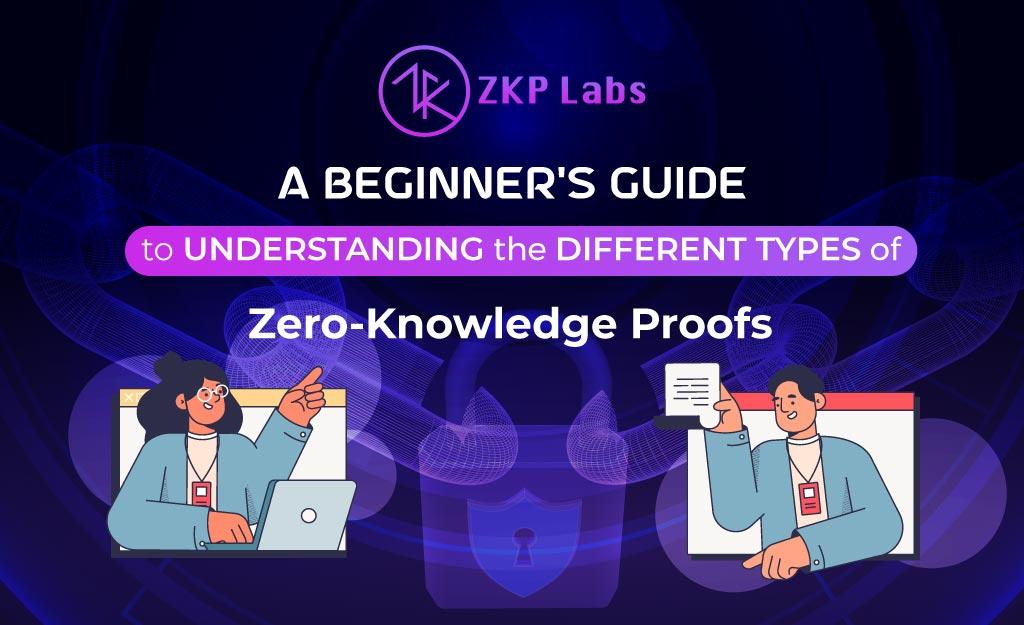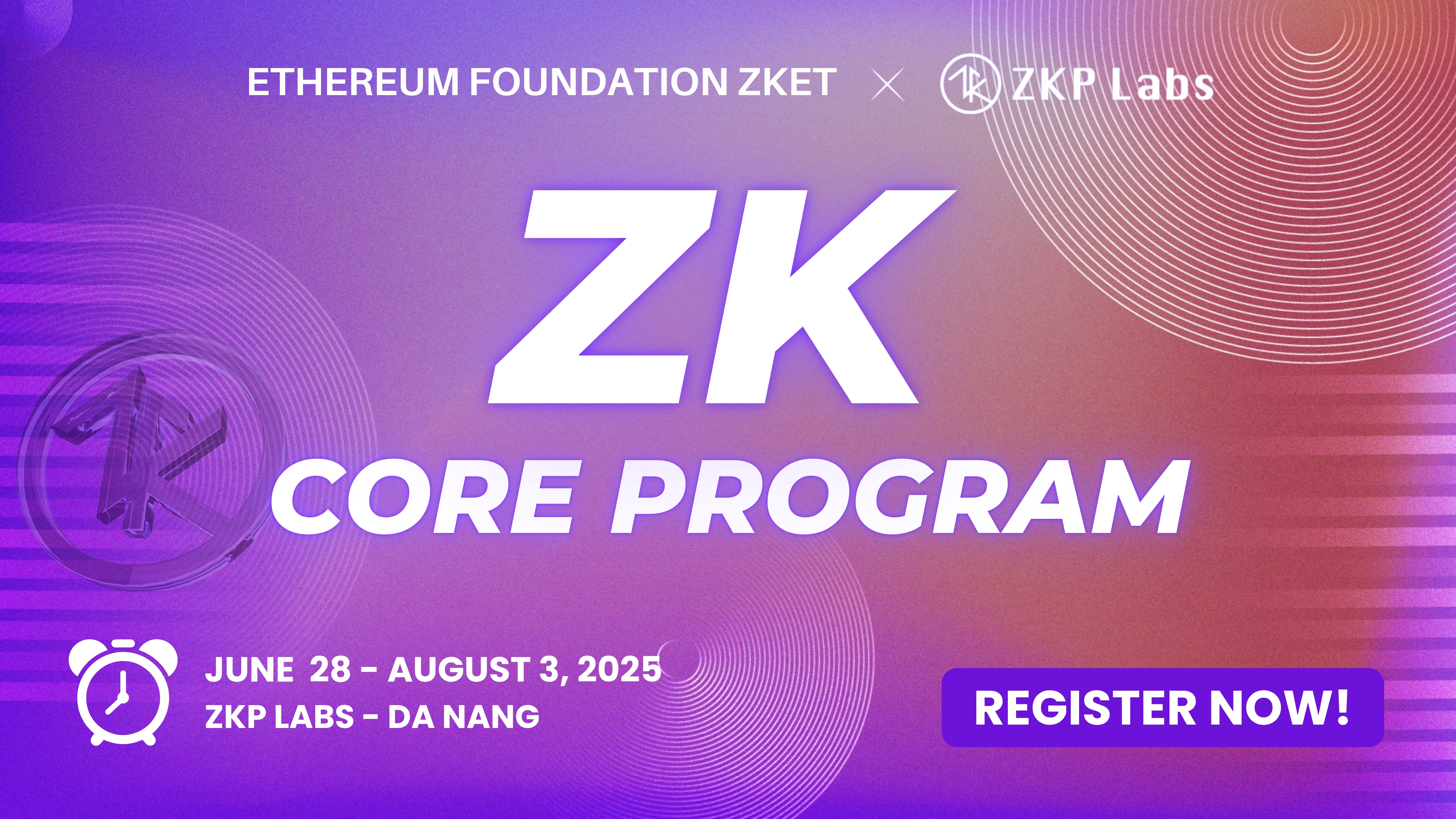A Beginner's Guide to Understanding the Different Types of Zero-Knowledge Proofs
Table of Contents

Zero-knowledge proofs are an exciting and rapidly developing area of cryptography, which allows one party to prove to another party that a statement is true, without revealing any additional information beyond the statement's truth. This is an incredibly powerful tool in many areas, from secure authentication to privacy-preserving data sharing. However, there are many different types of zero-knowledge proofs, each with its own strengths and weaknesses, and understanding the differences between them can be challenging for beginners. In this article, we will provide a beginner's guide to understanding the different types of zero-knowledge proofs.
Introduction to Zero-Knowledge Proofs
Before diving into the different types of zero-knowledge proofs, it's important to understand what a zero-knowledge proof is and why they are important. A zero-knowledge proof is a cryptographic protocol in which one party (the prover) convinces another party (the verifier) that a statement is true without revealing any additional information beyond the truth of the statement itself. This means that the verifier can be sure that the statement is true without knowing any other information about it.
The most common example of a zero-knowledge proof is the "Ali Baba" problem. In this problem, Ali Baba wants to prove to a genie that he knows the password to a secret cave without revealing the password itself. The genie, who is skeptical, asks Ali Baba to prove that he knows the password by entering the cave and returning with a golden coin. Ali Baba can prove that he knows the password by entering the cave and returning with the golden coin, but this reveals the password to the genie. However, if Ali Baba can use zero-knowledge proof, he can convince the genie that he knows the password without revealing the password itself.
Types of Zero-Knowledge Proofs
There are several types of zero-knowledge proofs, each with its own strengths and weaknesses. Here are some of the most common types of zero-knowledge proofs:
Interactive Zero-Knowledge Proofs
Interactive zero-knowledge proofs are protocols in which the prover and verifier engage in a back-and-forth conversation in order to establish the truth of a statement. These protocols are interactive because the prover and verifier need to communicate with each other multiple times before the verifier is convinced of the statement's truth.
Interactive zero-knowledge proofs are often used in situations where the verifier cannot trust the prover without additional evidence. For example, an interactive zero-knowledge proof might be used to prove that a user has a valid password without revealing the password itself.
Non-Interactive Zero-Knowledge Proofs
Non-interactive zero-knowledge proofs are protocols in which the prover can prove the truth of a statement to the verifier without any interaction between the two parties. Non-interactive zero-knowledge proofs are useful when the prover and verifier cannot communicate with each other directly, or when communication is expensive.
Non-interactive zero-knowledge proofs are often used in situations where the verifier needs to be convinced of a statement's truth without being able to communicate with the prover. For example, a non-interactive zero-knowledge proof might be used to prove that a particular transaction is valid without revealing the details of the transaction.
Statistical Zero-Knowledge Proofs
Statistical zero-knowledge proofs are protocols in which the prover can prove the truth of a statement to the verifier with a certain degree of confidence. The degree of confidence is determined by a statistical test, which the verifier can use to determine the probability that the statement is true.
Statistical zero-knowledge proofs are often used in situations where the verifier needs to be convinced of a statement's truth with a certain degree of confidence. For example, a statistical zero-knowledge proof might be used to prove that a particular cryptographic key is valid with
Proof of Knowledge
Proofs of knowledge are protocols in which the prover can prove that they possess knowledge of a secret value without revealing the secret value itself. The proof of knowledge allows the prover to convince the verifier that they possess the secret value without revealing any information about the secret itself.
Proofs of knowledge are often used in situations where it is important to prove knowledge of a secret value without revealing the value itself. For example, a proof of knowledge might be used in a secure authentication system to prove that the user knows the correct password without revealing the password itself.
Applications of Zero-Knowledge Proofs
Now that we have covered the different types of zero-knowledge proofs, it's important to understand the applications of these protocols. Zero-knowledge proofs have a wide range of applications, from authentication to privacy-preserving data sharing. Here are a few examples of how zero-knowledge proofs are used:
Authentication
Zero-knowledge proofs are commonly used in authentication systems to verify a user's identity without revealing their personal information. For example, a zero-knowledge proof might be used to prove that a user knows the correct password without revealing the password itself.
Privacy-Preserving Data Sharing
Zero-knowledge proofs are also used in privacy-preserving data sharing systems. These systems allow multiple parties to share data without revealing any personal information. For example, a zero-knowledge proof might be used to prove that a user is over the age of 18 without revealing their actual age.
Cryptocurrency
Zero-knowledge proofs are an important component of many cryptocurrencies, such as Zcash and Monero. These cryptocurrencies use zero-knowledge proofs to ensure that transactions are valid without revealing any information about the parties involved in the transaction.
Conclusion
In conclusion, zero-knowledge proofs are an incredibly powerful tool in many areas of cryptography. They allow one party to prove to another party that a statement is true without revealing any additional information beyond the statement's truth. There are several different types of zero-knowledge proofs, each with its own strengths and weaknesses. These protocols have a wide range of applications, from authentication to privacy-preserving data sharing. As zero-knowledge proofs continue to develop, it's important for beginners to understand the different types of zero-knowledge proofs and their applications.
About ZKP Labs
ZKP Labs is a non-profit organization that focuses on building a vibrant and supportive community in Southeast Asia dedicated to the advancement of Zero-Knowledge Proof (ZKP) technology. Through events, workshops, and training programs, we strive to create an environment that fosters collaboration, knowledge-sharing, and growth, empowering community members to contribute to the development and adoption of ZKP.
Categories
Event Recap
5
Zero Knowledge Proofs 101
32
Top Posts
1
How to start learning ZKPs as a beginner?
02 March 2023
2
Announcing the ZKP Advocacy Program Powered by Mina Foundation: Your Path to Zero-Knowledge Mastery
24 October 2024
3
What Jobs Can You Do About ZKPs?
15 March 2023
4
A Beginner's Guide to Understanding the Different Types of Zero-Knowledge Proofs
24 February 2023
5
Cơ chế và tác động của hành động làm giá trong thị trường tiền điện tử
21 December 2023
6
Khi Nào Zero-Knowledge Proofs Có Ích?
17 March 2025
7
Phân tích lỗ hổng lớn trong mạng zkEVM của Polygon
06 December 2023
8
Phân tích hành động lái giá: Tại sao hầu hết giá của dự án đều giảm?
21 December 2023
9
Hiểu về Plonky2: Một Framework SNARK hiệu suất cao dựa trên Rust
27 March 2025
10
Tìm kiếm cơ hội đầu tư vào Blockchain mô-đun
21 December 2023
Tag
Zero Knowledge Proofs


